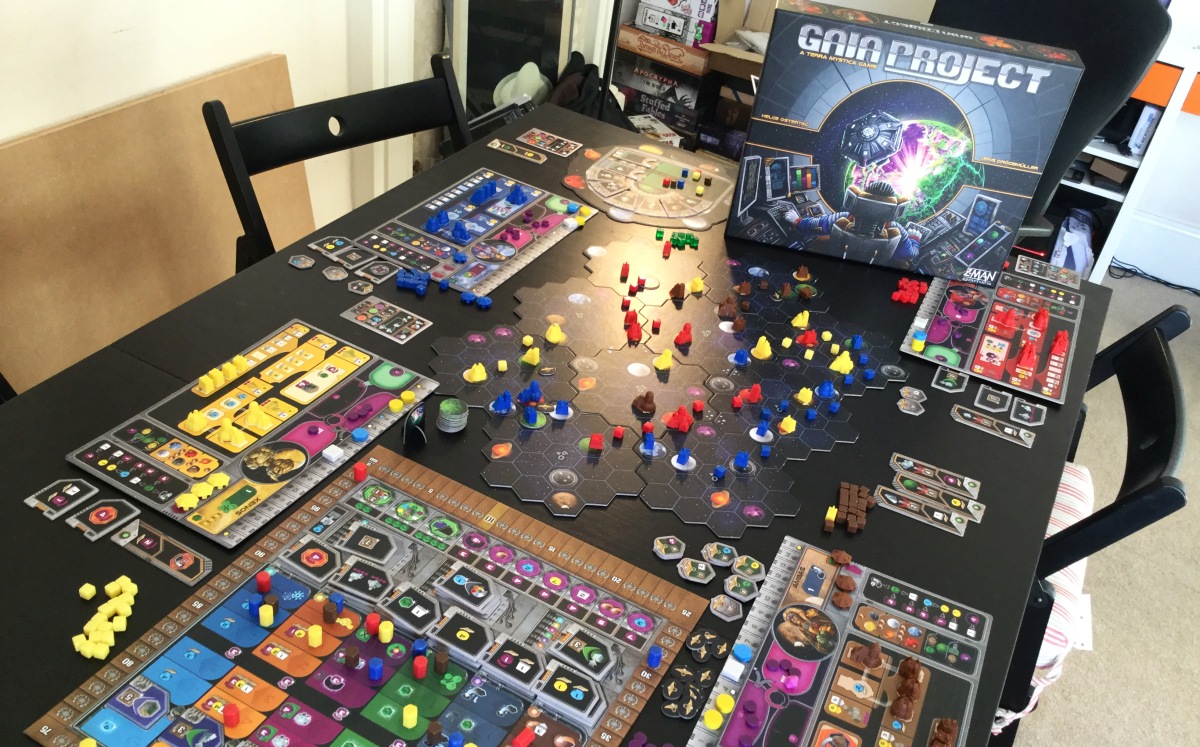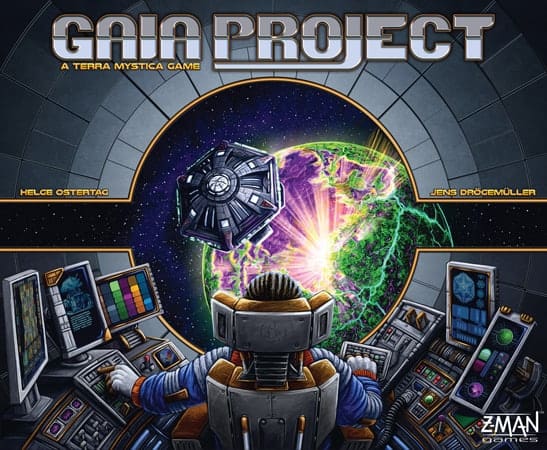Quinns: Everybody, stand up from your chairs! Pull up your pants. Spit out that gum. An esteemed classic has returned.
We reviewed fantasy town-building game Terra Mystica back in 2013 and found ourselves submerged in strategic nirvana. Today 28,000 people have rated it on BoardGameGeek, awarding it in an average of 8.3 out of 10. That’s shockingly high considering just how complicated and odd Terra Mystica is, with its challenging puzzle squished in between ugly mermaids and magic bowls. But there you have it! It’s just that enjoyable.
This week we’re looking at the sequel, Gaia Project, which is a big deal in more ways than one. As well as swapping Terra Mystica’s musty fantasy for a sci-fi backdrop, it’s more expensive, more complicated and demands significantly more table space. All set up, you’re looking at an asteroid belt of iconography.



